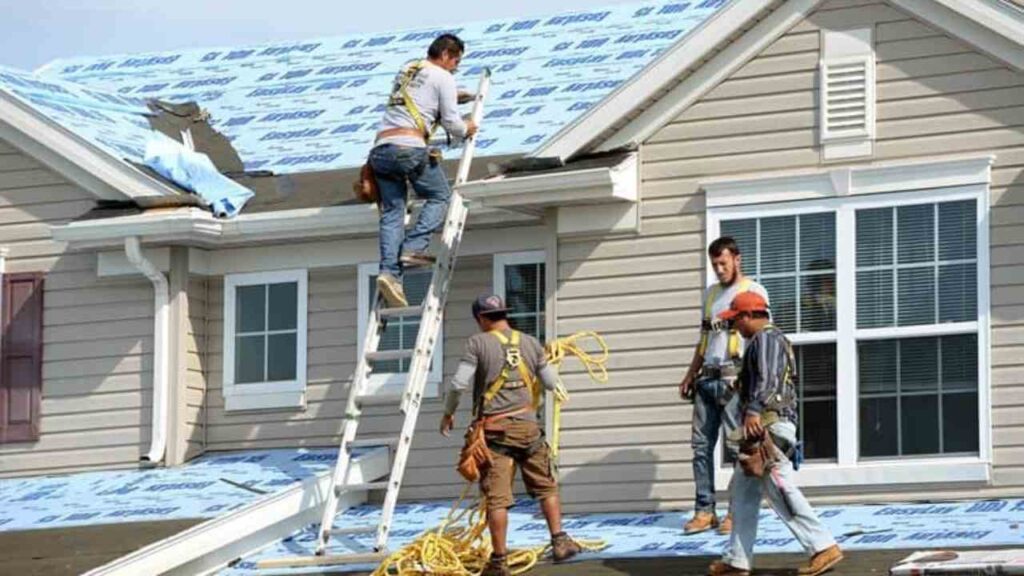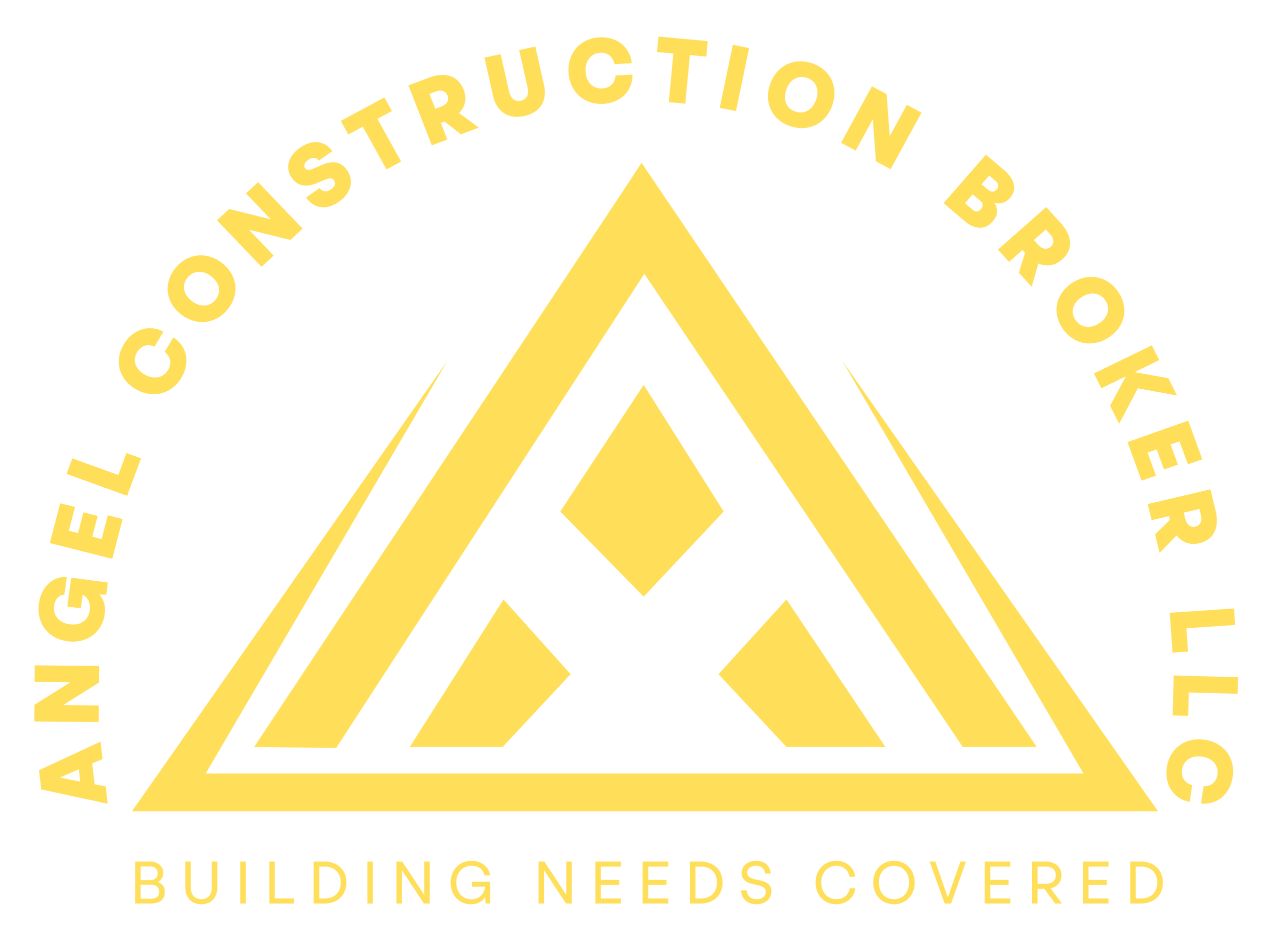Having a problem with your newly installed roof can be incredibly frustrating, especially after investing in such a significant home improvement. Whether it’s leaks, missing shingles, or issues with the installation itself, facing these problems can be overwhelming. But don’t worry—you’re not alone, and there are steps you can take to resolve the issue. In this guide, we’ll walk you with the help of Angel Construction Broker, through the actions you should take if you encounter problems with your new roof, from inspecting the issue to working with your contractor for a resolution.

It’s important to address any concerns promptly to prevent further damage and ensure your roof performs as expected. Ignoring problems could lead to more significant issues down the line, potentially compromising the integrity of your home and resulting in costly repairs. By taking action early and seeking professional roofing services when needed, you can protect your investment and enjoy peace of mind knowing your home is properly safeguarded against the elements.
Signs of Roofing Issues
Noticing signs of roofing issues early can save you from more extensive damage later on. Look for telltale signs like missing or damaged shingles, leaks in your attic or ceilings, or sagging areas on your roof. Stains or discoloration on your ceiling could indicate water damage. Pay attention to any unusual sounds during storms or strong winds, which could suggest loose or damaged roofing materials. Regularly inspecting your roof for these signs allows you to know if your roof needs repair or replacement, addressing problems promptly and preventing further damage to your home.
Importance of Prompt Attention
Prompt attention to roofing issues is crucial to prevent further damage and maintain the integrity of your home. Ignoring problems could lead to more significant issues over time, potentially compromising the structural stability of your roof and causing leaks or water damage. Addressing concerns promptly can also help preserve your home’s value and prevent costly repairs down the line. By taking action early, you can ensure that your roof continues to perform effectively, extending the average lifespan of a roof, and protect your home from the elements for years to come.
Common Problems in New Roofs
While new roofs are designed to be durable and long-lasting, they can still experience common issues. These may include improper installation, material defects, or damage from severe weather. Other problems could arise from poor ventilation, leading to moisture buildup and mold growth. It’s essential to be aware of these potential issues and address them promptly to prevent further damage. Regular inspections and maintenance can help identify and resolve common problems in new roofs, ensuring their longevity and performance.
Assessing the Severity of the Issue
When you encounter a roofing issue, it’s essential to assess the severity of the problem before taking action. Minor issues like a few missing shingles may only require simple repairs, while more significant damage could necessitate a full roof replacement. Look for signs of water damage, structural issues, or widespread deterioration that could indicate a more severe problem. Consulting with a professional roofer can help you accurately assess the severity of the issue and determine the best course of action.
DIY Inspection Tips
Performing a DIY inspection of your roof can help you identify potential issues early on. Start by visually inspecting your roof from the ground, looking for missing or damaged shingles, sagging areas, or signs of wear and tear. Use binoculars to get a closer look at your roof’s condition. Inspect your attic for signs of leaks or water damage, such as stains on the ceiling or damp insulation. Check your gutters for granules from shingles, which could indicate roof deterioration. Regular DIY inspections can help you catch problems early and prevent further damage to your roof.
Contacting Your Roofing Contractor
If you notice any issues with your roof, it’s essential to contact your roofing contractor as soon as possible. They can provide expert advice and guidance on how to address the problem effectively. Schedule a professional inspection to assess the extent of the damage and determine the best course of action. Your roofing contractor can also provide recommendations for repairs or replacements, as well as cost estimates and timelines for the work. By working with a trusted professional, you can ensure that your roofing issues are resolved promptly and effectively.

Warranty Coverage and Terms
When dealing with roofing issues, it’s essential to review your warranty coverage and terms. Check whether your roof is still under warranty and what types of damage are covered. Understand the terms and conditions of your warranty, including any exclusions or limitations. Some warranties may only cover manufacturing defects, while others may include installation errors or damage from severe weather. Contact your roofing manufacturer or contractor to file a warranty claim and initiate the repair process. Understanding your warranty coverage can help you navigate the repair process and ensure that any eligible repairs are completed promptly.
Professional Roofing Repair Services
If you encounter roofing issues that require professional attention, it’s essential to hire a reputable roofing repair service. Look for a licensed and insured contractor with experience in repairing your specific type of roof. A professional roofer can accurately assess the extent of the damage and recommend the most effective repairs. They can also ensure that repairs are completed safely and according to industry standards. Additionally, professional roofers have access to high-quality materials and tools, ensuring long-lasting and durable repairs. By hiring a professional roofing repair service, you can have peace of mind knowing that your roof is in good hands.
Cost Considerations for Repairs
When dealing with roofing issues, it’s essential to consider the cost of repairs. The cost of repairs can vary depending on the extent of the damage, the type of roof, and the materials needed for repairs. Minor repairs like patching a few shingles may be relatively inexpensive, while more significant issues like roof leaks or structural damage could be more costly. Get multiple quotes from different roofing contractors to compare prices and services. Keep in mind that investing in high-quality repairs now can save you money in the long run by preventing further damage and extending the life of your roof.
Preventative Maintenance Measures
Preventative maintenance is key to prolonging the life of your roof and preventing future issues. Schedule regular inspections and maintenance checks to identify and address potential problems early on. Keep your gutters clean and free of debris to prevent water damage and leaks. Trim overhanging branches and remove any debris from your roof to prevent damage from fallen branches or leaves. Inspect your attic for signs of leaks or water damage and ensure proper ventilation to prevent moisture buildup. By staying proactive with preventative maintenance, you can keep your roof in top condition and avoid costly repairs.
Ensuring Long-Term Roof Performance
Ensuring long-term roof performance requires ongoing care and maintenance. Regularly inspect your roof for signs of damage or wear and address any issues promptly. Keep your gutters clean and free of debris to prevent water damage and leaks.
Conclusion
n conclusion, maintaining a healthy roof is vital for the overall integrity and longevity of your home. By staying vigilant and addressing roofing issues promptly, you can prevent further damage and costly repairs down the line. Whether through DIY inspections or professional services, regular maintenance ensures that your roof performs as expected and protects your home from the elements. Understanding the importance of prompt attention to roofing issues, reviewing warranty coverage, and investing in preventative measures are essential steps in preserving your roof’s performance. By prioritizing proper care and maintenance, you can extend the lifespan of your roof and enjoy peace of mind knowing that your home is adequately safeguarded against potential damage.
FAQs
What are signs that my roof needs attention? Look out for missing or damaged shingles, leaks, sagging areas, and stains on ceilings or walls.
How soon should I address roofing issues? It’s crucial to address problems promptly to prevent further damage and maintain your home’s integrity.
What should I do if my newly installed roof has problems? Contact your roofing contractor immediately to assess the issue and determine necessary repairs or adjustments.
Are roofing repairs covered by warranty? Warranty coverage varies, so review your terms to see if repairs for certain issues are included.
How can I ensure long-term roof performance? Regular inspections, preventative maintenance, and prompt repairs are key to ensuring your roof’s longevity and effectiveness.
